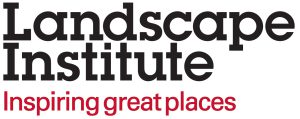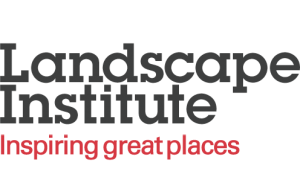
At no point has the future health of our urban, rural, and wild landscapes been more dependent on a progressive and impactful Landscape Institute. Together, we can make a difference.Building on work ongoing since the LI commissioned the Brown (Independent) Review in 2020, we will be making a step change in the way we work to foster a culture of collaboration between the people that shape our organisation – including the members, volunteers, Board, and staff.
Latest updates
The LI’s purpose, under our Royal Charter, is to protect, conserve and enhance the natural and built environment, for the benefit of the public, by promoting the art and science of landscape practice.
Running in parallel with our corporate vision to be a relevant, expert and trusted professional body, alignment between the two – and how we work to achieve them – is vital for our future as an organisation.
To ensure that this future is one of both impact and collaboration, the LI Board of Trustees has been working alongside LI staff and members to develop new ways of working, and create a framework that enables us to deliver on our purpose in accordance with our values.
We are introducing these new ways of working so that members, volunteers, Board and staff can gather, and focus on moving forward together. As we build for the future, the priorities of this work will be:
- To put all the people that shape our organisation at the heart of decision making.
- Review the roles of different parts of our governance structure in decision making processes.
- To define and promote more two-way engagement with members and branches.
- Examine how we meet our public interest role as a self-regulating profession.
The LI Board of Trustees add that “The LI has a vital role to play in addressing the climate and biodiversity emergencies, and creating a working environment in which its members, staff, and volunteers feel a combined strength and unity of vision is an essential part of delivering on this. Developing our ways of working to become the Institute we all want to be is a long-term and collaborative process, but great strides have already been made, and we’re confident that together, we can make a difference.”
The LI is currently operating around three strategic aims: people, membership and systems. These have been informed by feedback we received from the member survey conducted in 2023 and Roadshow in 2022. In response to this feedback, the LI has committed to eight pledges (see graphic ) to guide its immediate work.

Strategy and Planning
The Brown (Independent) Review
Commissioned in 2020, the Brown Review detailed a set of recommendations for the LI across strategy, leadership, working environment, governance, and operational delivery.
Updates on the recommendations made in the Brown Review will be highlighted in all relevant LI activity and communications. Their ongoing implementation continues to guide our core business delivery and immediate strategic priorities of people, membership and systems.
Governance Review and Centre for Governance and Scrutiny Report
The Centre for Governance and Scrutiny (CfGS) report was commissioned by the Board of Trustees in 2022. The purpose was two-fold: to have an independent audit of the progress we had made in implementing the recommendations of the 2020 Brown Review into the functioning of the Landscape Institute, and to resume the wider review into our new ways of working. The Board received the Report at its meeting on 18 October 2023 and asked the newly established Governance Committee to consider its findings and advise on how its recommendations should be taken forward. When agreed they will be combined with the outstanding work from the Brown review into a plan which will be consulted on and implemented as part of our Business Plan for 2023-24 and 2024-25.
2023-24 Business Plan
The Landscape Institute’s Business Plan covering the period of April 2023 – March 2024 can be found here. It is titled ‘New Ways of Working’, and marks the start of a more collaborative and inclusive LI.
The Business Plan sets out our immediate focus on people, membership, and systems, and shows how these key pillars will guide our work going forward through eight membership pledges. We have listened to our members, as well as the recommendations made to us in the strategic reviews we’ve commissioned, and the result is that we’re putting collaborative working, and the strengths of our members, at the heart of everything we do.
As we look ahead, this Business Plan will set up our organisation for the planning, consultation, and launch of two key items of work: our new digital home, which we’re calling Project Kestrel, and our 2024-29 Corporate Strategy, which will keep us stable and focused in the years ahead.
LI brand identity review and refresh
We aim to refresh the LI brand, ensuring that it truly represents and supports the Institute today and into the future, driving growth, diversity, global reach, influence and profile across a wide range of stakeholder groups (members, volunteers, staff and partners).
Our brand is the combined perception of everything we are, everything we say and everything we do. The refresh will define a clear, modern and confident brand that resonates, is accessible and meets our audience’s needs. We will ensure our audiences are able to engage with, trust and experience the brand identity through tailored and relevant messaging.
The refresh will ensure a consistent, uniform identity across our channels and material and through every touchpoint and interaction. It will capture both hearts and minds, providing functional and emotional benefits, conveying a solid value proposition to every constituent, inside and outside the organisation.
We’ll be issuing updates on progress throughout the process, including opportunities to get involved and have a say.
Governance and Structure
The way we build a more open, inclusive landscape institute is guided by the recommendations made to us in independent reviews such as the Brown Review, and the CfGS report, alongside feedback from our member survey.
A recommendation made in the Brown Review in 2020 was to review the effectiveness of the Board of Trustees. This has seen the creation of new ‘Governance’ and ‘People, Culture and Change’ committees, and a time-limited ‘Task and Finish Group’, which is reviewing the way the standing committees operate and the way we develop public policy and technical guidance.
A new, strong and invigorated staff team will focus on a vision around three core priorities of membership, people and systems, for the next 12-18 months in particular.
Project Kestrel
Project Kestrel is the LI’s new digital transformation programme, set to dramatically improve the efficiency and experience of working with the LI for all.
Our new digital home will provide a seamless customer experience, offering simple, accessible member self-service and effective communications and engagement, unlocking value for members, staff and other stakeholders.
Integrating our digital operations into one ecosystem, it will include:
- Member services such as accreditation, technical guidance, and CPD
- Member self-services such as renewals, booking events, and CPD management
- Member portal
- Website
- Customer Relationship Management (CRM) system and case management
- Content Management System (CMS)
Throughout 2024, we will be engaging with members on Project Kestrel – from project kick off, through to launch.
We’ll be issuing updates on progress throughout the process, including opportunities to get involved and have a say.
- With ‘engagement’ being one of our eight pledges, we are keen to examine a more two-way engagement with members, registered practices, and branches.
- We will be looking at member grades and member value proposition, as well as the branch network proposition.
Opportunities to get involved in focus groups, meetings, and consultations.



